A Run for Your Money
'A Run for Your Money' could have been a real contender. It certainly has all the right ingredients to consider it an 'Ealing Classic', with great characters, fantastic high contrast monochrome cinematography, and gentle if twisted Ealing humour. But sadly the narrative lets the side down.
It's a nice enough idea. Two wet behind the ears coal-mining brothers win a trip to London to collect a monetary prize and watch an England-Wales Rugby match. They're set to meet with a newspaper reporter, played by Alec Guinness, who will be their reluctant escort on the big bad city. But following a brief encounter with the reporter they are separated and it's not long before these green young men are fair game in the big city.
One of the brothers bumps into a Welsh harpist who lures him into one pub too many and the other brother falls for the charms of a bewitching con-woman. Poor old Mr. Whimpole of the Weekly echo is left to pick up the pieces.
On paper this all sounds like great stuff, but in reality it's a bit thin to fill 80 minutes.
'A Run for the Money' was the fifth Ealing comedy to be released in 1949 and at least three of the other four ('A Passport to Pimlico', 'Whiskey Galore' and 'Kind Hearts and Coronets') were incredibly well received and are rightly considered classics to this day. To have turned in a fourth of this calibre would have been expecting much, and as it turns out, too much. Which is not to say 'A Run for Your Money' is a bad film. It most certainly is not. But in the final analysis it should be seen as nothing more than a pleasant romp as opposed to an Ealing classic.
Arriving from a Welsh mining town, the nattily named Hafoduwchbenceubwllymarchogcoch, David 'Dai' 'Number 9' Jones (Donald Houston) and his brother Thomas 'Twm' Jones (Meredith Edwards) have won a contest run by the Echo newspaper chain and the prize is a sumly £100 each, plus the best seats for an important rugby union match between Wales and England at Twickenham. A gardening columnist for the paper (Mr. Whimple played by Alec Guinness) is sent to meet them at the station but he misses them. The two brothers get separated from each other too when Dai is picked up by a glamorous con artist (Jo played by Moira Lister) after she overhears them talking about the prize money. At her suggestion they go to the paper together to pick up the money. Whimple is told that he must take responsibility for the naive young Dai though Jo and Dai soon shake him off. It's not long before a smitten Dai is falling hook line and sinker for Jo.
Meanwhile brother Twm bumps into an old friend, Huw (Hugh Griffith) who was once a fine harpist but who is now down on his luck. Having pawned his instrument Twm decides to help Huw get it back. Then they head for the match but arrive just as it is finishing.
Meanwhile Jo takes Dai shopping for a diamond ring for his fiancée Bronwen but her cohort Barney (Leslie Perrins) tries to con him. Luckily Dai changes his mind about which ring to have and ends up with a real diamond ring after all. Jo then takes Dai back to her flat so that Barney can steal his winnings. In a heated romantic moment though, Dai offers Jo the chance to come to live with him in Wales, even offering to pay for her fare. His affection has touched Jo who is not a bad sort at heart and she can no longer go through with the sting. However when Whimpole appears and exposes her as a con-woman she steals the money anyway. Eventually Dai gets hold of Jo's purse with the money in though she and Barney tell a policeman that he has stolen it so he has to give it back. But when Dai's train is pulling out the station, Jo throws the money back in shame. Not such a bad dame after all.
It's strange to see Guinness in such a minor role and he appears to pretty much sleep walk his way through it. There's also something slightly unwholesome about Dai's relationship with Jo that seems curiously at odds with the story in general and which is never really satisfactorily resolved. The young Welshman (Dai) allows himself to be utterly seduced in London when earlier in the story we were introduced to his fiancé. He even refers to her once or twice during the film, choosing a diamond ring for her in one scene. This would be fine if he were he playing a dark or complex character, but he is never portrayed as anything other than the 'salt of the earth'. It just doesn't add up.
This was editor Charles Frend's first comedy, and, though technically it is superb, it never quite gets going. This was probably as a consequence of the script being penned by several writers, including Welsh novelist Richard Hughs ('A High Wind in Jamaica').
There are no extras on the disc, though the transfer is really very good. Real purists may lament the slight alteration from Academy to standard 4 by 3 though not much is lost in real terms. Audio is perfectly acceptable original mono.
This will delight Ealing completists, though may disappoint those just entering that revered world. Strictly one to get after all you've exhausted the quite extensive list of far superior movies.
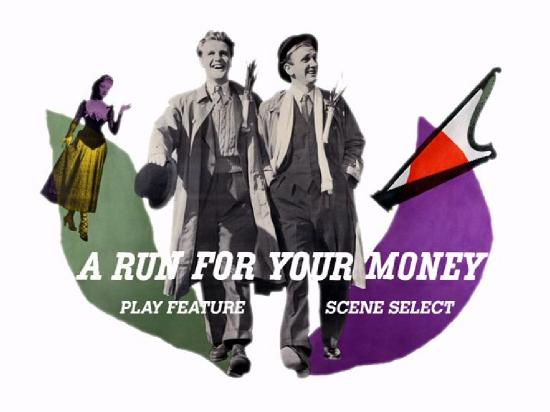
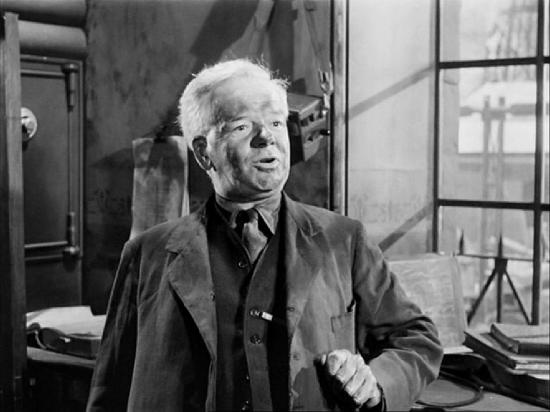
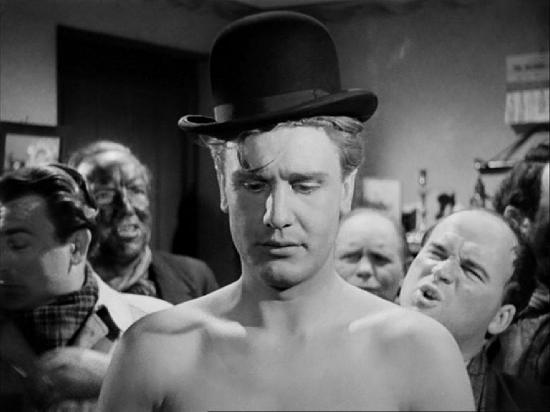
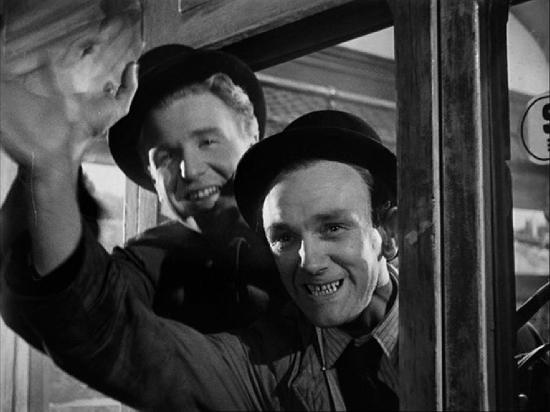
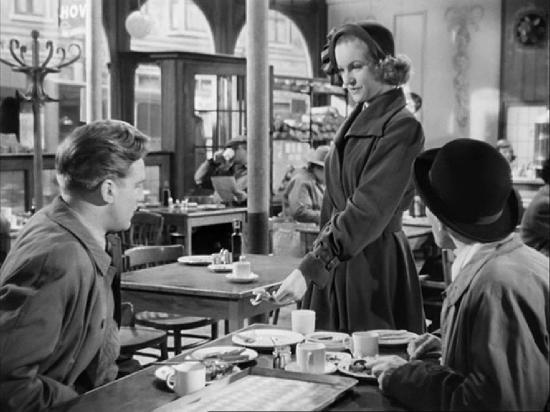
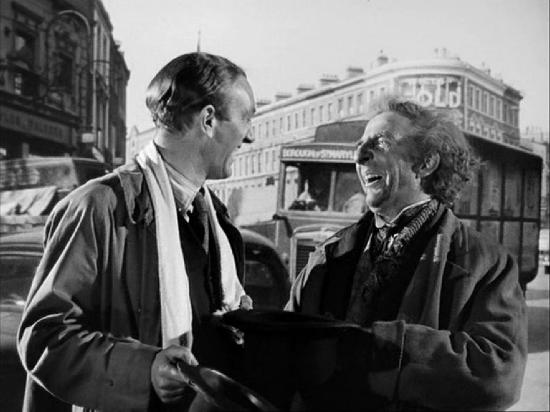
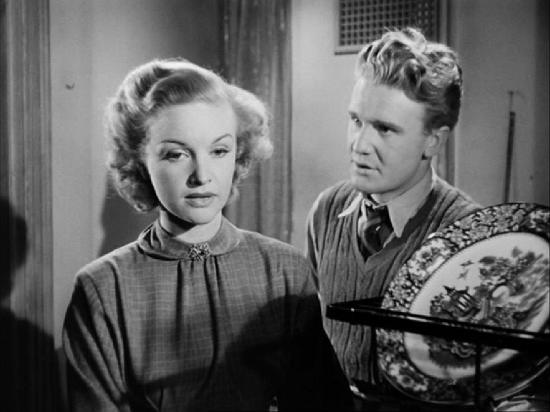
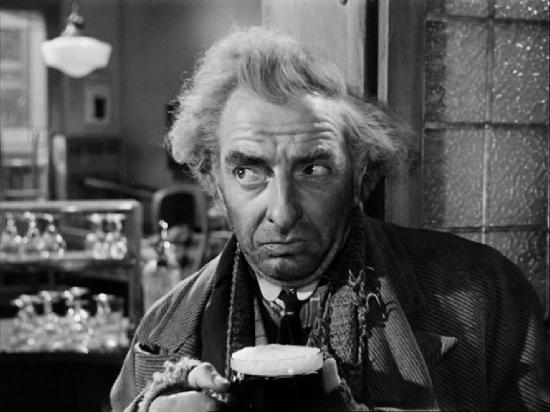
Your Opinions and Comments
Be the first to post a comment!